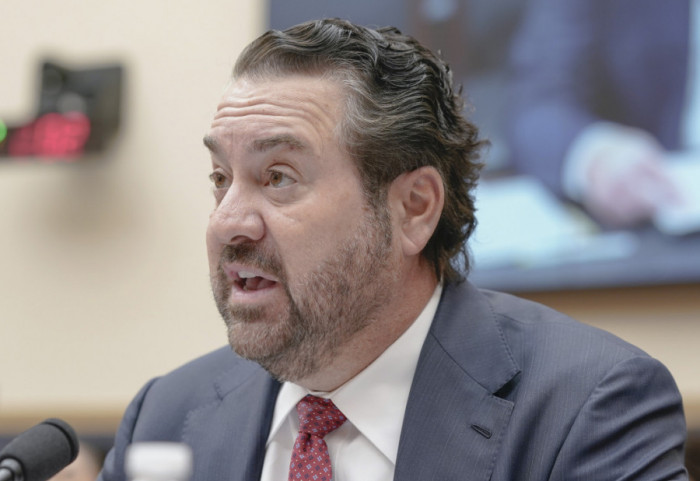
Trump Appoints Mark Brnovich as New U.S. Ambassador to Serbia
U.S. President Donald Trump has appointed Mark Brnovich as the new Ambassador of the United States to Serbia.
08:59Pre 327 d31.03.2025.
AutorNewsmax Balkans aplikaciju možete preuzeti sa Google Play i App Store-a.

Economic commentator Luka Cubrilo, in an op-ed for Newsmax Balkans, analyzed the potential impact of Mark Brnovich’s nomination as the new United States Ambassador to Serbia on future relations between Belgrade and Washington.

While this nomination might seem like a routine diplomatic move accompanying the return of a Republican administration to power, a closer look at Brnovich’s personal and professional background reveals that this is a well-considered choice—one that could have long-term significance for the relationship between the two countries. That’s why Donald Trump’s election could also have important implications for Serbia’s future foreign policy and its ties with Washington.
Brnovich is not a career diplomat, which marks a shift from his predecessors. He is a lawyer, former Arizona Attorney General, a politician with strong conservative beliefs, and—importantly—an American of Serbian heritage. His father is from Montenegro, and his mother is a Serb from Dalmatia, which the author notes with special appreciation. His life story, while not unusual within the context of American society built on waves of immigration, is quite rare in today’s diplomatic circles. In a time when most ambassadors come from professional bureaucratic ranks, the appointment of someone from the executive branch—who knows the inner workings of the U.S. legal and political machinery—sends a clear message: Brnovich is here not just to represent, but to act.
Serbia is no longer merely a “place in the Balkans” in Washington’s eyes. Energy diversification, efforts to curb Russian and Chinese influence, and attempts to connect partners in infrastructure and high-tech sectors position Serbia as a space full of options—but also challenges. The arrival of an ambassador with political weight, firm views, and personal ties to the region indicates that the United States is planning a more proactive approach. There are areas where Brnovich will likely build upon the work of his predecessor—especially in economic and energy relations—but there will also be domains where he must navigate new circumstances, such as trade tariffs and the tense situation in Bosnia and Herzegovina.

U.S. President Donald Trump has appointed Mark Brnovich as the new Ambassador of the United States to Serbia.
08:59Pre 327 d31.03.2025.
Autor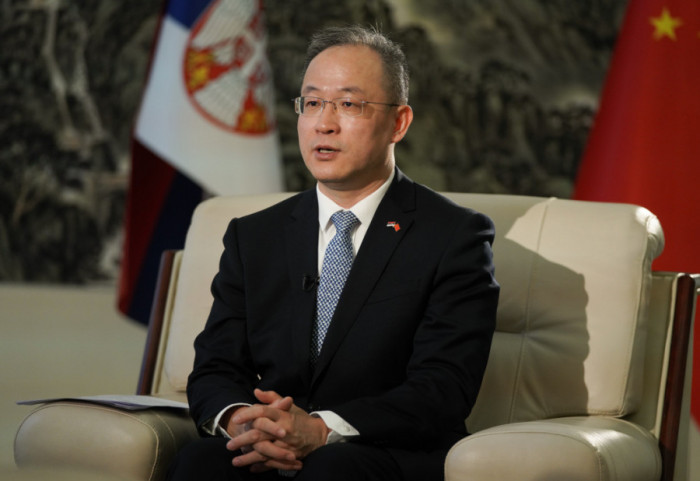
The Chinese Ambassador to Belgrade, Li Ming, stated that he does not expect U.S. tariffs to affect the operations of the two major Chinese companies in Serbia – Zijin and HBIS – nor that the trade war the U.S. is waging against China will in any way impact the cooperation between China and Serbia.
09:19Pre 309 d18.04.2025.
Autor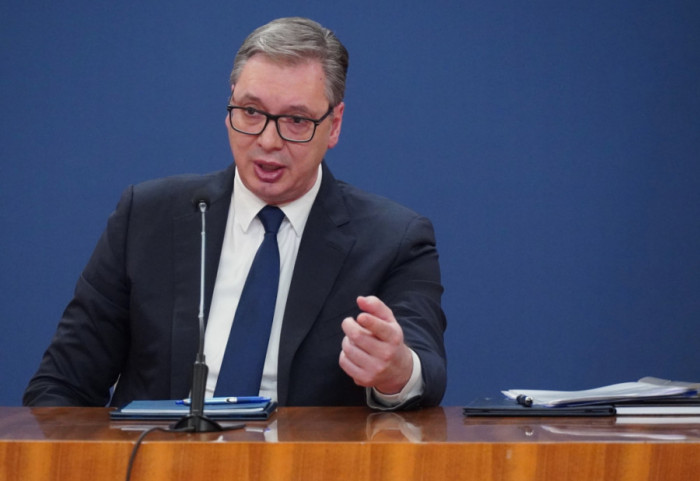
President of Serbia Aleksandar Vucic stated in a speech that he expects to meet with U.S. President Donald Trump in the next 30 days, most likely at the beginning of May, on U.S. territory.
11:32Pre 320 d07.04.2025.
AutorAs a Republican and former Senate candidate, Brnovich has shown consistent support for the rule of law, fiscal responsibility, and individual freedoms—particularly during the turbulent COVID-19 era. His understanding of the importance of the tech sector for America’s future economic, security, and global competitiveness could translate into greater cooperation with Serbia’s growing IT sector, which already exports heavily to the U.S. Coming from Arizona—a state that in recent decades has seen significant growth in microelectronics, renewable energy, and logistics—Brnovich’s experience could be beneficial for Serbia, provided there is political will to open these sectors to long-term strategic partnerships with the U.S.
The American interest in Serbia is no longer based solely on political and security matters. The energy sector is now in focus—from potential U.S. participation in renewable energy projects to the increasingly critical issue of ownership over NIS (Serbian oil industry). If the American administration decides to apply more pressure over Russian ownership in key energy firms, Brnovich will be the one to deliver those messages—but also to propose solutions that avoid confrontation. This will be no easy task, but it will be a realistic test of bilateral relations.
Still, the most sensitive issue in U.S.-Serbia relations remains Kosovo. During his first term, Trump’s administration made progress—not in symbolic gestures, but in attempts to reach concrete economic agreements. That model—pragmatic and focused on investment and trade rather than ideological disputes—could be reactivated. Brnovich, as someone who understands both legal and political dimensions, could carry this approach forward: reducing tensions through mutual interest, rather than through lofty diplomatic declarations.
Brnovich’s nomination also carries symbolic weight for the Serbian community in the U.S. Many Serbs in America are successful professionals, entrepreneurs, scientists, athletes, and public figures—but it’s especially encouraging to see some rise to high positions in the federal government. Brnovich’s ascent sends a powerful message to young people of Serbian origin that the American system is open and that success can be achieved through hard work, knowledge, and dedication. He now joins a list of successful Americans of Serbian heritage, such as former Tesla Motors chief engineer Milan Cabric, NASA astronaut Dr. Milena Acimovic, and many Serbian scientists who participated in the Apollo missions.
What sets him apart from previous ambassadors is precisely his political background. As a former state official, he understands the importance of institutions—but also the dynamics of political relationships. Brnovich is clearly not coming to be a mere observer, but rather to negotiate, build relationships, and sometimes set terms. If confirmed by the Senate, his mandate will not be merely diplomatic—it will be strategic. It entails both responsibility and opportunity.
For Serbia, this means a decision must be made—will Brnovich be welcomed as a partner or seen as pressure? If there is readiness to modernize institutions, open the doors to American investment in high-tech and energy sectors, and define a new framework for cooperation that goes beyond Cold War-era thinking, Brnovich could become a key ally. But if the expectation is for a protocol-focused ambassador offering soundbites to the media, it will be a missed opportunity.
At a time when the world is undergoing technological, political, and economic realignment, Serbia cannot afford to remain on the sidelines. An ambassador with political clout and personal understanding of regional dynamics can help make a leap forward—but only if there is a clear plan and the will to seize the potential.
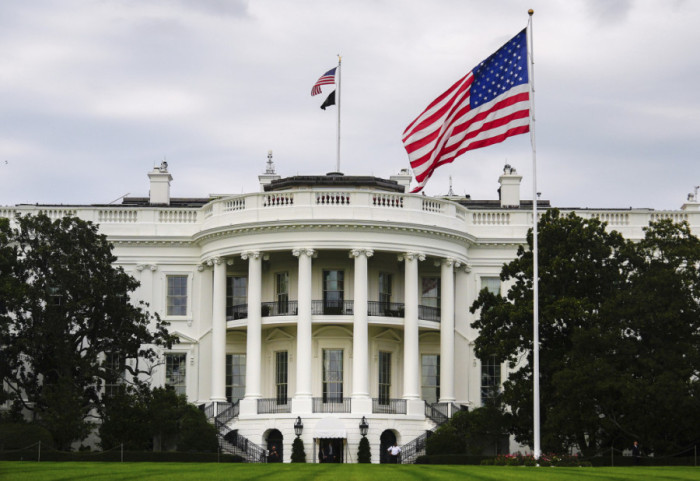
"I hope that people who were unfairly charged these tariffs will get their money back," said Andrew Hale of the Plymouth Institute for Free Enterprise, commenting on the decision of the U.S. Supreme Court to strike down a range of tariffs imposed by Donald Trump, which the Court found to be unlawful
09:00Pre 18 h21.02.2026.
Autor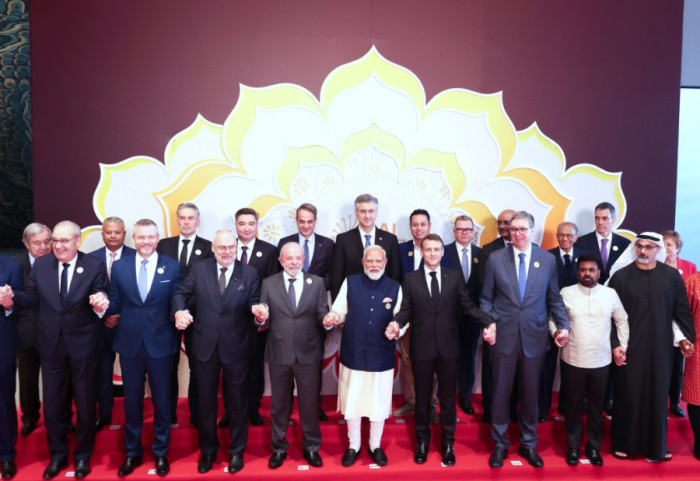
The President of Serbia, Aleksandar Vucic, stated in New Delhi, where he is participating in the Artificial Intelligence Summit, that Serbia must build infrastructure for greater use of AI, as well as reform its education system.
13:10Pre 2 d19.02.2026.
Autor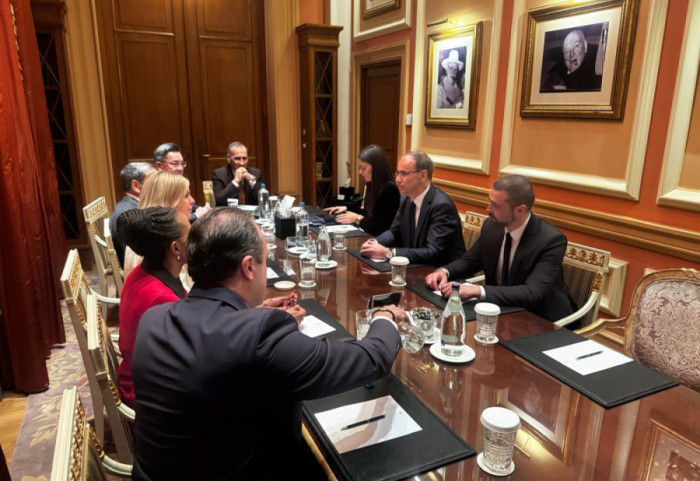
Prime Minister of Serbia, Prof. Dr. Djuro Macut, stated in Athens that Serbia remains committed to strengthening its strategic partnership with Greece and enhancing regional stability.
15:46Pre 4 d17.02.2026.
Autor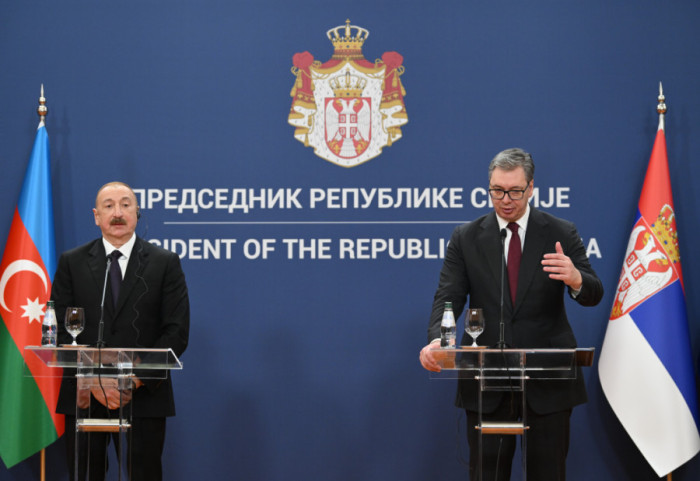
President Aleksandar Vucic stated that cooperation between Serbia and Azerbaijan is growing in all spheres of social life, adding that he discussed economic cooperation with Ilham Aliyev and that, compared to 2012, trade exchange between the two countries has increased sixteenfold.
08:53Pre 5 d16.02.2026.
Autor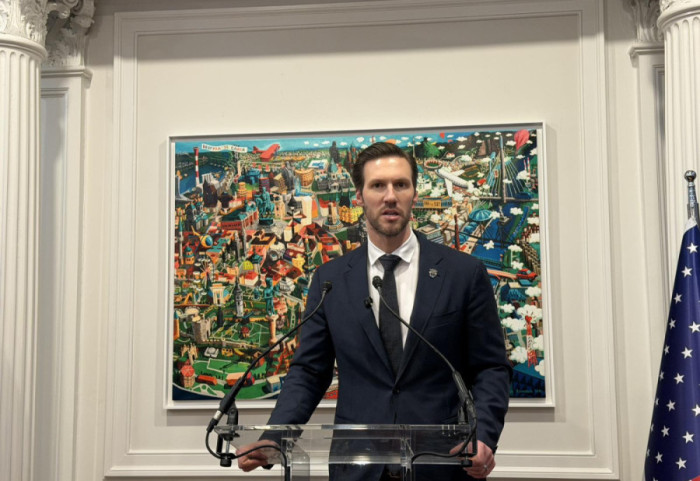
U.S. Congressman Pat Harrigan, speaking to Newsmax Balkans on the occasion of Serbia’s Statehood Day, said that relations between Serbia and the United States hold significant potential for further development, particularly in the fields of economic cooperation, technology, and regional stability.
20:02Pre 7 d14.02.2026.
Autor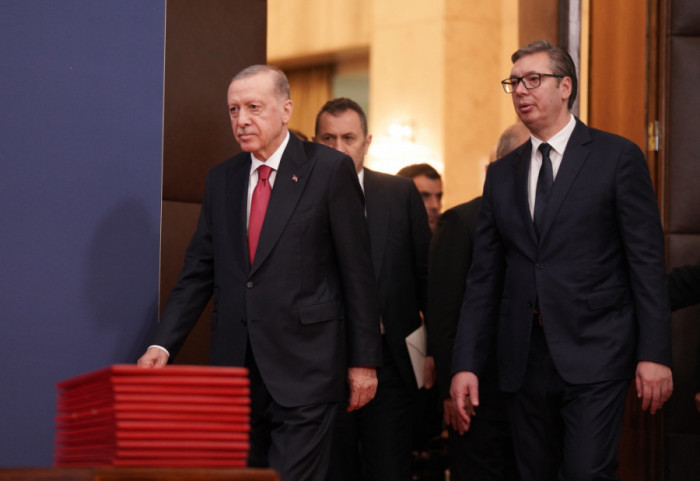
The President of the Republic of Serbia, Aleksandar Vucic, met at the Presidential Palace in Ankara with the President of the Republic of Turkey, Recep Tayyip Erdoğan.
13:44Pre 8 d13.02.2026.
Autor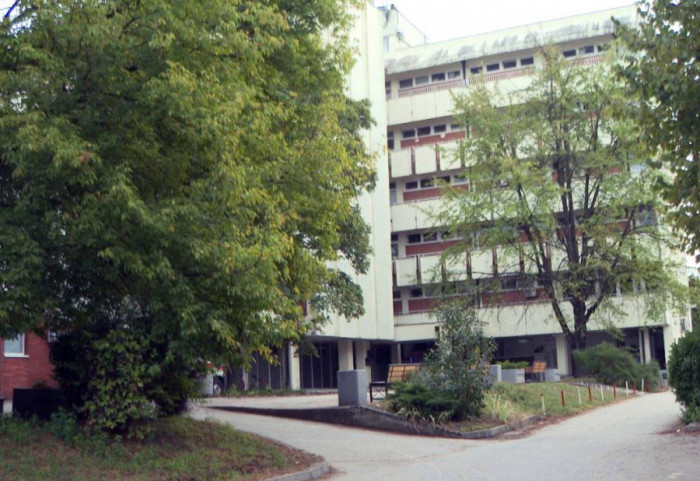
At the General Hospital in Cacak, during the night between February 11th and 12th , a 38-year-old man died in the postoperative period after surgery to remove his third tonsil, the Ministry of Health announced.
13:11Pre 8 d13.02.2026.
Autor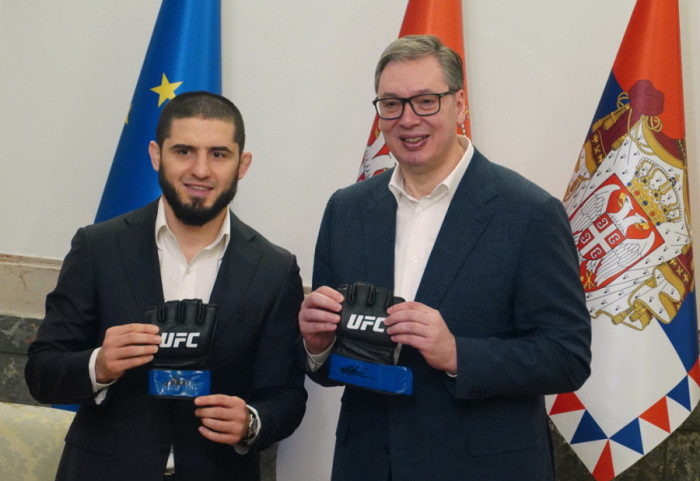
President of Serbia Aleksandar Vucic met with MMA fighter and world champion Islam Makhachev to discuss the importance of sport as a foundation of a healthy society and the role that elite athletes play in motivating young people to develop discipline, responsibility, and perseverance.
17:30Pre 10 d11.02.2026.
Autor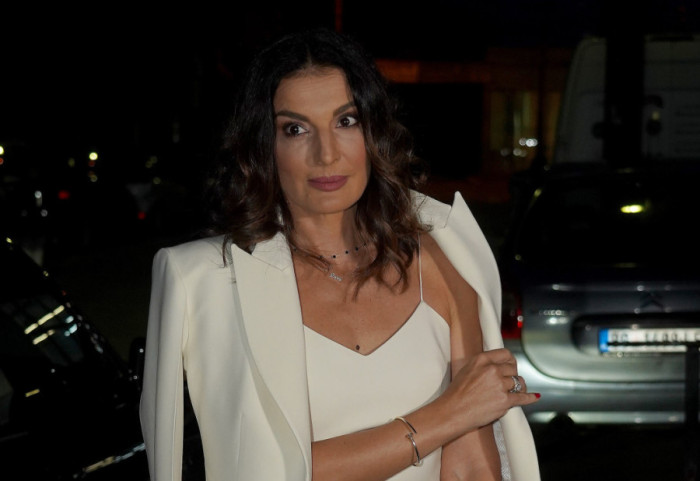
Manja Grcic, Director of the Tanjug news agency and co-owner of K1 Television and the communications agency Majo Public, has been elected as the new Director General of Radio Television of Serbia (RTS), Branislav Klanscek, a member of the RTS Managing Board, confirmed to the Newsmax Balkans portal.
17:24Pre 10 d11.02.2026.
Autor
Komentari (0)